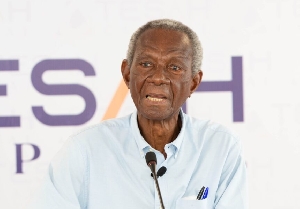Accra, Aug. 30, GNA – The first SWIFT Business Forum for the West Africa Monetary Zone (WAMZ) opened in Accra on Tuesday to explore opportunities and challenges facing countries in the sub-region in their march towards financial integration.
The workshop, being attended by about 200 participants from the six countries in the second monetary zone, is on the theme: “West Africa Monetary Zone – Clearing the Path to Regionalization”.
Ghana, Gambia, Nigeria, Sierra Leone and Guinea are working to create a second monetary zone in the sub-region. Cape Verde currently has an observer status.
It will set the stage for stakeholders to examine SWIFT as a choice of market payment infrastructure system for WAMZ in their journey towards becoming a regional financial block.
SWIFT is a community of financial institutions using a messaging platform of the highest security and reliability. It also sets standards for electronic financial messaging.
SWIFT oversight focuses primarily on the security and operational reliability of SWIFT’s infrastructure.
The objective is to ensure that appropriate structures, processes, management procedures and controls exist to manage effectively the risks SWIFT network may pose to financial stability and the soundness of financial infrastructures.
Addressing the opening session, Mr Damien Zaato, General Manager, Ghana Interbank Payment and Settlement System, said the forum provided the real opportunity for business discussions of the payment system.
He said a good payment system was key to promoting and extending the boundaries of trade among countries in the West African sub-region.
While efforts are made to build payment infrastructure across the region, Mr Zaato said it was important to ensure that the systems were able to operate together across the countries to make it easier for payment.
Mr Twum Ohene-Obeng, Project Director, West African Monetary Institute, said the development of a robust payment system would pave the way for the rapid integration of the countries.
It would also make easier, the transition from a cash-based economy to a cashless society.
Mr Ohene-Obeng said funding and unreliability of telecommunication networks were major challenges facing the deployment of payment infrastructure in most of the countries.
Business News of Tuesday, 30 August 2011
Source: GNA












